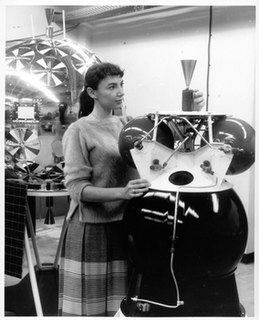A Quote by Daniel Greenberg
In traditional schools, you're penalized for making a mistake. But that won't work in the new information culture, in the digital world we live in today.
Related Quotes
We have to remember that information sharing is restricted by legal barriers and cultural barriers and by the notion that information is power and therefore should be hoarded so if you share information you can extract something in exchange. In today's digital online world, those who don't share information will be isolated and left behind. We need the data of other countries to connect the dots.
If they learn easily, they are penalized for being bored when they have nothing to do; if they excel in some outstanding way, they are penalized as being conspicuously better than the peer group. The culture tries to make the child with a gift into a one-sided person, to penalize him at every turn, to cause him trouble in making friends and to create conditions conducive to the development of a neurosis. Neither teachers, the parents of other children, nor the child peers will tolerate a Wunderkind.
Many teachers of the Sixties generation said "We will steal your children", and they did. A significant part of America has converted to the ideas of the 1960s - hedonism, self-indulgence and consumerism. For half of all Americans today, the Woodstock culture of the Sixties is the culture they grew up with - their traditional culture. For them, Judeo-Christian culture is outside the mainstream now. The counter-culture has become the dominant culture, and the former culture a dissident culture - something that is far out, and 'extreme'.
There is an interesting and new way to be excited about the fashion world today maybe. The traditional path of fashion as simple magazine images has dissolved - we are seeing new and innovative ways to share, create, and enjoy ideas. I am challenged to learn and explore paths of finding new photographers, stylists, and vision-makers online or through direct contact, connecting with ideas and creativity in new ways, and making images with different outlets. Sometimes more unbridled avenues and unconventional ways lead to things I wouldn't have thought of yet.
Digital technologies are setting down the new grooves of how people live, how we do business, how we do everything--and they're doing it according to the expectations of foolish utopian scenarios. We want free online experiences so badly that we are happy to not be paid for information that comes from us now or ever. That sensibility also implies that the more dominant information becomes in our economy, the less most of us will be worth.



































